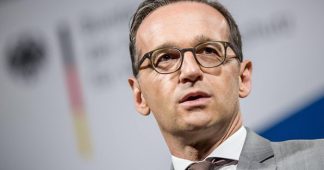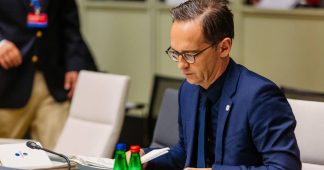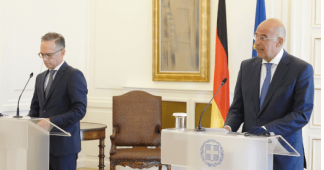Maria Zacarova, spokeswoman of the Russian Foreign Ministry said the following commenting German Foreign Minister Heiko Maas’s interview with RIA Novosti:
In an interview with RIA Novosti Russian Information Agency on October 13, 2020, German Federal Minister for Foreign Affairs Heiko Maas described the situation with the poisoning of Alexei Navalny as “not being a subject of relations between Russia and Germany.” We regard statements like this as a tactical ploy that serves as a cover for a policy of undermining bilateral relations, which is being pursued by Germany. Let me remind you that it was Berlin that, while blatantly disregarding its obligations under international law to render Russia practical assistance in investigating an incident involving a Russian national, has exploited it to come up with well-known unwarranted accusations against our country, as well as ultimatums and threats, assuming yet again, on its own initiative, the role of a motivator to push through new anti-Russia sanctions in the EU and other multilateral formats.
We unequivocally deny the statements that Heiko Maas has made publicly on more than one occasion about representatives of Russian executive authorities alleging that Navalny poisoned himself. This is a pure lie. Nobody has ever made such a statement. We unambiguously perceive these words by the German Foreign Minister as a provocative move that oversteps the boundaries of propriety.
We cannot regard the German Foreign Minister’s assurances that Berlin is interested in maintaining good or, at least, sound relations between Russia and Germany as sincere. We would like to note that the essence and importance of these relations is linked in public consciousness not solely to geography, as Maas said in his interview, but, to a significant extent, to our common history, which has as crucial chapters as those written in the 20th century alone, including the liberation by the Soviet Union of Germany and the rest of Europe from Nazism, the unprecedented reconciliation of the peoples of our two countries that followed, and Moscow’s decisive role in restoring German unity. The German government is eroding the framework of trust-based relations that took decades to build and the foundation for which was laid by the friendship between the USSR and the GDR, as well as Willy Brandt’s Ostpolitik. Today, Berlin is backtracking on both the GDR and Willy Brandt’s political legacy.
Mutual trust has been undermined – and not by Russia’s actions but by the policy that the West has been pursuing in recent years, including moves like NATO’s fast-track expansion, despite pledges to the contrary; providing support for militants in Russia’s Caucasus; providing political cover for Georgia’s revenge-seeking military aggression led by Mikheil Saakashvili in 2008; and the de facto sponsorship of the anti-Russia coup in Ukraine in 2014, to name but a few.
As for Maas’s comments on the current situation in Belarus, we call on the German Foreign Minister to abstain from interference in word and in action in the internal affairs of a country that is our ally. We believe the Belarusians do not need instructions either from Berlin or the capital of any other foreign country, for that matter, to reach a consensus on issues of real public concern. Aggressive intervention by the collective West in the internal processes of third countries invariably leads to the emergence of new hotspots in the world.










